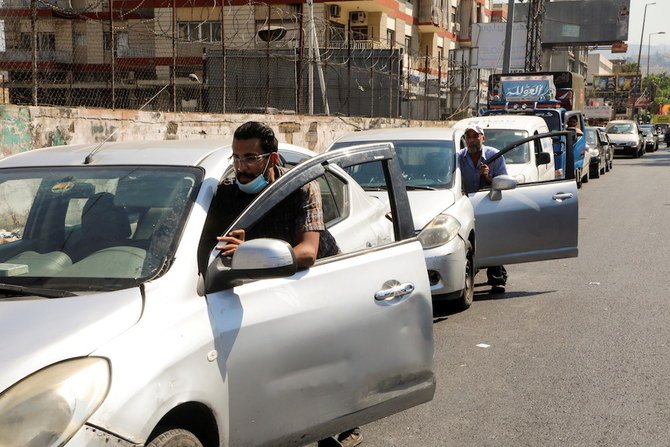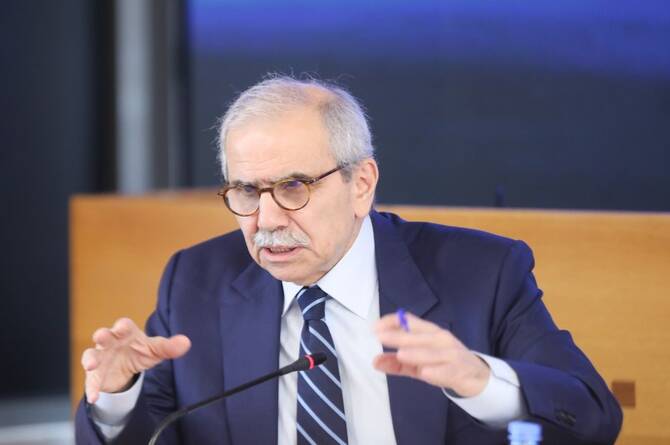BEIRUT: Lebanese fuel prices soared by up to 70 percent on Sunday after yet another subsidy cut, official figures showed, heaping more pressure on people struggling to make ends meet in the cash-strapped country.
The cost of hydrocarbon fuels in Lebanon has now roughly tripled in the two months since the central bank started decreasing its support for imports. The latest cut, which is expected to cause price hikes for other key commodities, comes as the Mediterranean country is mired in one of the world’s worst economic crises since the 1850s.
Dire shortages have seen Lebanon’s people struggle to find enough fuel to drive to work or power back-up generators during near round-the-clock electricity cuts. Motorists have become caught up in long lines outside the petrol stations that have remained open.
The refusal of many petrol stations to sell what they do have saw the army deploy this month to seize hoarded fuel and distribute it to the needy. Frustrations have boiled over in recent weeks, with scuffles repeatedly breaking out over scarce fuel, leaving at least three people dead. Last weekend the explosion of a fuel tank in the north of the country killed at least 30 people.
The cost of 98- and 95-octane petrol rose Sunday by 67 and 66 percent, respectively, from Aug. 11, according prices posted by the National News Agency.
The cost of mazout, a widely used petrol derivative, soared by 73 percent over the same period. The price of a cooking gas canister shot up by more than 50 percent. All three types of fuel cost roughly three times what they did on June 23.
Fadi Abu Shakra, a representative of the Fuel Distributors Union, told Arab News that the decision of the General Directorate of Petroleum (setting new prices) would help relieve the market on the pressure due to soaring demand. “However, the fuel tankers anchored at sea have yet to unload the fuel. It may take two days for the fuel to be available at gas stations, relieving the pressure. As for now, most gas stations do not have any fuel left.”
On Saturday, Lebanese leaders agreed to a short-term compromise to maintain fuel subsidies. The presidency announced approval of a “request for the Bank of Lebanon to open a temporary account to cover urgent and exceptional subsidies for fuel.”
Up to $225 million would be set aside to subsidize imports of gas, fuel oil and cooking gas until the end of September. Political observers believe that the agreement was reached to satisfy both camps — President Michel Aoun leads the first and the second one is led by various parties. The former insists on maintaining fuel subsidies while the latter supports lifting the subsidies and direct the funds to fight poverty.
Abu Shakra feared that “the demand for fuel would decline after the hike in prices,” noting that “the new prices did not increase the profit margin of gas station.”
Most people in Lebanon earn wages in the local currency, the pound, which has lost more than 90 percent of its value against the US dollar on the black market since 2019.
The central bank on Saturday agreed to support fuel imports at an exchange rate of 8,000 pounds to the dollar, up from a rate of 3,900 to the greenback set during a first de facto subsidy decrease in June.
Before that the Bank of Lebanon had provided importers with the foreign currency at the official rate of around 1,500 to the dollar.






















